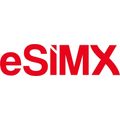airdatalinkは旅行中の通信に最適な、手頃で信頼性の高いeSIMソリューションを専門としています。最高の価値とサービスを提供することに重点を置いており、安心して快適に世界を旅できます。

airdatalinkは旅行中の通信に最適な、手頃で信頼性の高いeSIMソリューションを専門としています。最高の価値とサービスを提供することに重点を置いており、安心して快適に世界を旅できます。
プロモコード
韓国向けairdatalink eSIMデータプラン
利用者のレビュー
あなたの海外eSIMの体験談も、ほかの旅行者のためにシェアしてみませんか?
良い
お得な価格と好評なレビューを見て、このeSIMを選びました。過去に他社のeSIMをいくつか試してうまく使えなかった経験があるため、レビューのないものを使うのは少し不安だったのですが、そのレビューに同意したいです。Airlinkは韓国全土で問題なく使えました。3週間ずっとSKネットワークに接続されていて、1GBあたりの価格を考えると、これ以上の選択肢はあまりないと思います。
よくある質問
airdatalinkは韓国向けに無制限データeSIMを提供していますか?
airdatは韓国向けに無制限データeSIMを提供していません。代わりに30日間有効で最大50GBのデータ容量を持つプランが用意されています。たとえば、South Korea eSIMは50GBを$19.33 USDで提供し、South Korea eSIM Premiumは同量のデータを$32.55 USDで販売しています。両プランとも5Gネットワークでの高速通信が可能で、韓国国内でのカバレッジが保証されています。
大量データ通信を頻繁に行わない限り、これらの大容量プランがコストパフォーマンスに優れています。無制限の料金が高額かつ余分なデータが多くなるリスクがある一方、50GBプランは使用量に対して適切に料金が設定されており、必要以上に支払うことがありません。したがって、通常の旅行や仕事でのインターネット利用には、airdatの大容量プランが最も経済的と言えるでしょう。
airdatalinkは韓国向けに電話番号やSMS付きeSIMプランを提供していますか?
airdatalinkは韓国向けに電話番号付きやSMS機能付きのeSIMプランを提供していません。
すべての利用可能なプランはデータ通信専用であり、音声通話やSMSは利用できません。
LINEやFacebook Messenger、iMessageなどのVoIPアプリはデータ通信で動作するため、電話番号やSMS機能がなくても通信は可能です。
airdatalinkは韓国向けにいくつのデータプランを提供していますか?
airdatalinkは韓国向けに41件の国別プランと12件の複数国プランを提供している。国別プランは単一国カバーであり、複数国プランは2カ国以上で利用できる。さらに、定量データプランが25件、1日あたりのデータ上限付きプランが28件あり、価格はUSD 2.54〜50.35、データ容量は1GB〜50GB、有効期間は2〜30日という幅広い価格帯・容量・有効期限が設定されている。
Summarized by Gen AI. Last updated:




